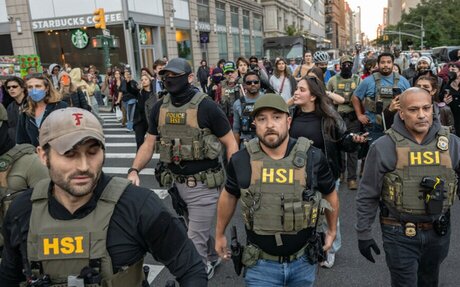|
|
1 1 . 1 1 . 2 5
All Access
5 items
There was no newsletter yesterday, Nov. 10.
VCOG’s annual FOI awards nomination form is open.
Nominate your FOIA hero!
|
|
|

|
Local
In January, the Spotsylvania School Board will bring to an end a tumultuous chapter in its history. Lisa Phelps and April Gillespie—the final two members of a four-person voting block that controlled the Board from 2022 to 2024—will leave. As she prepares to exit, however, Phelps is insisting that current Board Chair Megan Jackson “send the Board members a copy of the BWP recruitment package from 2024, including Dr. Mitchell’s college certifications and background check documents from that process.” [BWP was the recruitment firm used to hire Dr. Clint Mitchell as superintendent.] That request came via an email from Phelps to Jackson on Sunday, October 12. The Advance received a copy of the email under the Freedom of Information Act. The reason Phelps gave for her request was the “recent arrest of an Iowa superintendent and the surrounding allegations.”
|
|
|

|
Local
It’s been a lively year for the student journalists of Alexandria City High School newspaper Theogony, who were recently named some of the best in the state. Just months after Theogony staff made national headlines for their enterprising Voices Unbound campaign, the student newspaper was one of five in Virginia to win top-ranking “Trophy Class” honors from the Virginia High School League. Former co-editor James Libresco, who spearheaded the anti-censorship campaign, was also named Virginia’s Student Journalist of the Year. “We’re not just student journalists — we’re journalists who happen to be students, and you can do great work,” co-editor Rozalia Finkelstein told ALXnow. “I think these awards kind of give some sense to that.”
|
|
|

|
Editorial
In a democratic republic, the bedrock of trust between government and its citizens is transparency. Recent events in Surry County serve as a stark reminder of how easily this fundamental principle can be eroded, leaving the public in the dark and questioning the very integrity of those elected to serve them. The decision to withhold a crucial 218-page audit report until after a pivotal Board of Supervisors discussion and vote is not merely a procedural misstep; it is a profound disservice to the citizenry and affront to the spirit, if not the letter, of the Virginia Freedom of Information Act. FOIA explicitly mandates that “all materials furnished to members of a public body for a meeting shall be made available for public inspection at the same time such documents are furnished to the members of the public body.” The county’s assertion that posting documents online “as soon as practicable” afterward somehow absolves them of responsibility misses the entire point of the law. As Megan Rhyne, executive director of the Virginia Coalition for Open Government, said, “If we’re debating when to share them — before, during or after the meeting — we’re missing the point. The purpose is for the public to see what’s being discussed as decisions are being made that affect them.”
|
|
|

|
Column
It’s our guess that most people who read about response times aren’t aware that they can be measured very differently by first responders. The law-enforcement website Police1 covers response issues frequently, including with a recent webinar on “advancing unified command and communication” on Nov. 4. In one article that was published a decade ago, Police1 noted that “almost every agency measures ‘response time’ differently. Some cities use a ‘hello to hello’ standard. This is the time it takes for a dispatcher to pick up the phone (“hello”) and the time it takes the police officer to arrive on scene (“hello”). Other agencies break this time into multiple chunks, such as how long the dispatcher stays on the line, how long the officer is en route to the call and how long the officer is on scene. Our recommendation is that response times, wherever possible, should be disaggregated in such a way as to differentiate between life-and-death emergencies and those that are far less serious in nature. This would not only make the response time measures more useful — it might save other innocent lives along the way.
|
|
|

|
Federal
The Department of Homeland Security has stopped using software that automatically captured text messages and saved trails of communication between officials, according to sworn court statements filed this week. Instead, the agency began in April to require officials to manually take screenshots of their messages to comply with federal records laws, citing cybersecurity concerns with the autosave software.
|
|
|
|
|
|
|
|
|